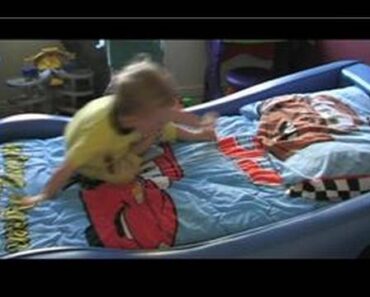For the past two hours, you’ve been sitting with your kid, speaking only in soothing tones (while contemplating what bribes might work), desperately hoping he’ll miraculously plow through three more pages of math problems without another meltdown. Or perhaps you’ve just received yet another email from the teacher, who’s sorry to have to get in touch again, but your son has forgotten to hand in the reading response due last Friday. Or maybe you’re still hunched over in the basement, well past bedtime, as you and your daughter painstakingly construct a model of a Mohawk longhouse, one toothpick at a time.
Unless you happen to be blessed with a hyper-organized, methodical, consistently motivated kid (we’re not jealous at all), you are keenly familiar with the pain and frustration of homework. Is there any way to sidestep all the drama?
“Figure out what makes them tick,” says Ruth Rumack, a former teacher and founder of Ruth Rumack’s Learning Space, an academic support centre in Toronto. Does your kid leave things to the last minute or have a hard time keeping track of assignments? Your kid’s personality, temperament and learning style are huge factors in how she deals with homework and how you deal with her. “If you can identify the roadblock for your child,” Rumack says, “you have a better chance of setting up a situation that creates success.”
Here, a cheatsheet on the most common “homework personalities” that crop up in kids and how to handle each one of them.
1. The procrastinator
Your child has known about the solar system project for three weeks now. But so far there’s only a half-painted Styrofoam sun abandoned in the basement. As parents, we know all too well the temptation to put work off, and it’s no different for many kids.
The first thing to investigate is whether your child understands the material or is struggling with a learning exceptionality. Once those are ruled out, it’s good to remember that kids are going to find pretty much everything vastly more interesting than homework. And, as registered psychologist and parenting educator Vanessa Lapointe explains, one of the parts of the brain that helps manage self-control doesn’t necessarily become functional until the child is well into elementary school, sometimes as late as age 12. So the urge to organize Pokémon cards will win out, and the understanding that science homework needs to be done will completely disappear.
On top of that, most kids don’t yet have a clear concept of how long a task takes. “Why should I start gluing this longhouse now? It won’t take that long!” (Which is how you find yourself huddled in the basement at 10:30 p.m., nowhere near finished.)
What to do: Insist the fun stuff can’t happen until the homework is completed. Royan Lee, a Toronto-area teacher and father of three, takes a strict approach. “All of our kids have a to-do list they must accomplish every day,” he says. “Things like playing video games cannot be done until homework is clearly done.” It also helps to break the work down into manageable parts. So if your kid has five pages of addition due next week, have him tackle one page a day.
Tech Support: Create to-do lists and sync them with your own schedule using digital calendars and reminder apps (like Google Calendar). Any “to do” items that don’t get done, can automatically get shifted to the next day. Or set a timer on your phone to prevent your kid from getting overwhelmed. (“Let’s see how much you can get done in the next 10 minutes!”)
2. The perfectionist
Beyond the pull of Pokémon, there may a deeper reason your kid is putting off homework. If he can’t bear the thought of not doing it perfectly, he just won’t do it.
Kids who are sensitive or who are identified as gifted are especially prone to perfectionism, Lapointe says. The parents she sees at her practice in Vancouver often tell her they know their kids are capable of the work, but as she says, “they don’t want to venture into that vulnerable state of doing homework.” Perfectionists, she adds, see it as “an opportunity for someone to shine a spotlight on the fact that they have no idea what they’re doing or feel that what they’re doing is not living up to their ideal.” Sometimes they’ll start a project many times—they keep rejecting their own ideas, hoping the next one will be perfect.
What to do: Overcoming perfectionism is anything but easy. In fact, your kid may always have anxiety around getting things right, and it might take longer for her to get through work than you might expect.
Try to keep the focus on process rather than outcome. As Lapointe says, “the learning journey should be about how to approach this, how we problem solve.” For instance, instead of asking what mark he got, she suggests parents say, “Did you try your hardest? Then whatever happens now is not important.”
To ensure your kid doesn’t get stuck, say, at the brainstorming stage, Rumack recommends placing time limits on tasks. Or if your child can’t abide the idea of spelling anything incorrectly, a “spelling doesn’t count” rule—not worrying about or fixing spelling until the task is done—is worth trying; it can also help them avoid the perfectionist tendency to play it safe for fear of getting something wrong.
Tech Support: Dictation tools, such as Google Voice Typing or built-in Mac transcription, can help kids get ideas down without having to worry about spelling or penmanship, which can hold many perfectionists back.
3. The speed demon
With some kids, the faster they can get their homework done, the better. They’ll come home, whip out the assignment sheet, write a few rudimentary sentences and then holler, “Done!” They might feel that it’s silly to write about a book they’ve already read and they want to spend as little time as possible rehashing it. Those two-digit multiplication problems were a piece of cake in class—why do a whole extra page of them at home? They have better things to do.
What to do: Going over homework with your kids and double-checking that it’s up to snuff can help them understand why it’s important to be thorough, Lapointe says. For written work, Rumack has her tutors use the COPS checklist: Kids review their work and look for capitalization, order and organization, punctuation and spelling. You can also create checklists based on the criteria set out in the assignment sheet to help break tasks down.
Tech Support: Rumack recommends using tablet apps or software that encourage preplanning of written work, such as Google Drawings or Inspiration. If it’s the process of writing ideas out that your child finds arduous, dictation software can help record ideas as quickly as they are produced.
4. The rebel
Maybe your kid is starting to see the world with a more critical eye, or maybe she has other interests that fall outside what’s being delivered in the school curriculum. In any case, she just doesn’t see the point of that geometry worksheet and has absolutely no interest in exploring the history of French-Canadian folk music. Rebels will second-guess and question the purpose of almost everything.
This, of course, can be a good trait. As Lee says, there’s more and more evidence that in the future the recipe for adult success will be about “divergent thinking, creative thinking, thinking outside the box and not waiting for someone to tell you what to do.” But if this attitude is starting to become problematic for the teacher and marks are suffering, it might be time to go back to basics.
What to do: Keep the emphasis on learning. Help your kids discover what new ideas, concepts or skills they can master. See if there’s a way to draw connections between their passions and the work they’re doing at school. If, for instance, you can persuade them that learning about area, perimeter and volume might help them design and build their own Millennium Falcon, you may make some progress.
Resist the urge, however, to offer rewards or bribes, says Lapointe. Even if you’re just rewarding effort, it sets up a bad dynamic in which the kid’s goal—whether it’s ice cream or more screentime—becomes the prize, not the learning experience. But as Lee says, sometimes it comes down to this message: “Whatever homework you’re getting, you just need to get it done, you don’t necessarily have to put your heart and soul into it.”
Tech Support: The novelty of a tech device or app can jump-start a rebel’s interest. Motivational tools like digital timers can help get them into the groove of sitting down and working. And if your child is particularly resistant to reading, Rumack finds audiobooks can be quite helpful, although she strongly recommends that a physical copy of the book remain part of the reading process, too.
5. The forgetter
Did he write in his agenda today? “Oh no, I forgot.” When is the diorama project due? “I can’t remember.” Where did he put that assignment sheet for the family tree project? “I don’t know.”
Part of our role as parents is to help kids develop organizational skills, Lapointe says, but with some kids, that’s going to require a lot of monitoring, reminding and cajoling. “For many children, remembering and organization simply are ‘can’t dos’ rather than ‘won’t dos,’ because of immaturity,” she says.
What to do: Start out with a lot of structure, repetition and reminders. At first, don’t rely on your child to drive the process, as she may not yet have the skills or the maturity to deal with the consequences of her actions. Help her develop good habits by attaching a tag to her backpack with a list of everything she needs to remember to bring home and by checking her agenda together at the end of the day. Once her organizational skills begin to develop, it’s important to back off, Lapointe says, so that you’re not just perpetuating a situation in which the child is depending on you to remember everything for her. (You don’t want to end up being your kid’s permanent personal assistant.)
Tech Support: Many tech tools are tailor-made for the forgetter. If the school allows devices in the classroom, taking a picture of the homework board can help students who have a hard time using a physical agenda. The same goes for assignment sheets: A digital photo is much harder to lose than a crumpled piece of paper in the bottom of a backpack. Digital calendars, where parents and kids can sync reminders, can also be invaluable.
Make it a habit
As parents, we quickly learn that no matter what the parenting challenge, one of our most effective tools is helping kids develop a routine. That applies to homework, too. Experts recommend kids sit down at the same time, in the same place every evening so that starting homework becomes as automatic as
putting on a seat belt.
When to back off
There’s no doubt kids benefit when you get involved in monitoring homework and help them establish good habits. But you don’t want to get over-involved. If you help too much, you might be masking a larger problem. As teacher Royan Lee says, if a child is assigned work she just doesn’t have the skills, knowledge or understanding to complete, there’s really no value in having a parent fill in the blanks. After all, kids learn the most when they themselves figure out how to overcome hurdles. And teachers need to know when a child is having trouble with the work or just isn’t developmentally ready to tackle it. Parenting educator Vanessa Lapointe says parents need to consider when to rescue their children and when to let them fail. If you believe your child has the maturity and the tools to deal with failure, sometimes the decision not to intervene might be the right one, and once in a while a reprimand from a teacher might go way further than more nagging from you. The message that occasionally we need to back off can be a difficult one for some parents to hear. Lee’s advice? “Teachers assign homework because we want students to practise something. We know not everyone’s going to get it done.” And remember, if your child is struggling every night to complete assignments, it could be that either her homework is too difficult or she’s getting too much. That’s definitely the right time to talk to the teacher about what’s going on.
This article was originally published online in August 2016.

































